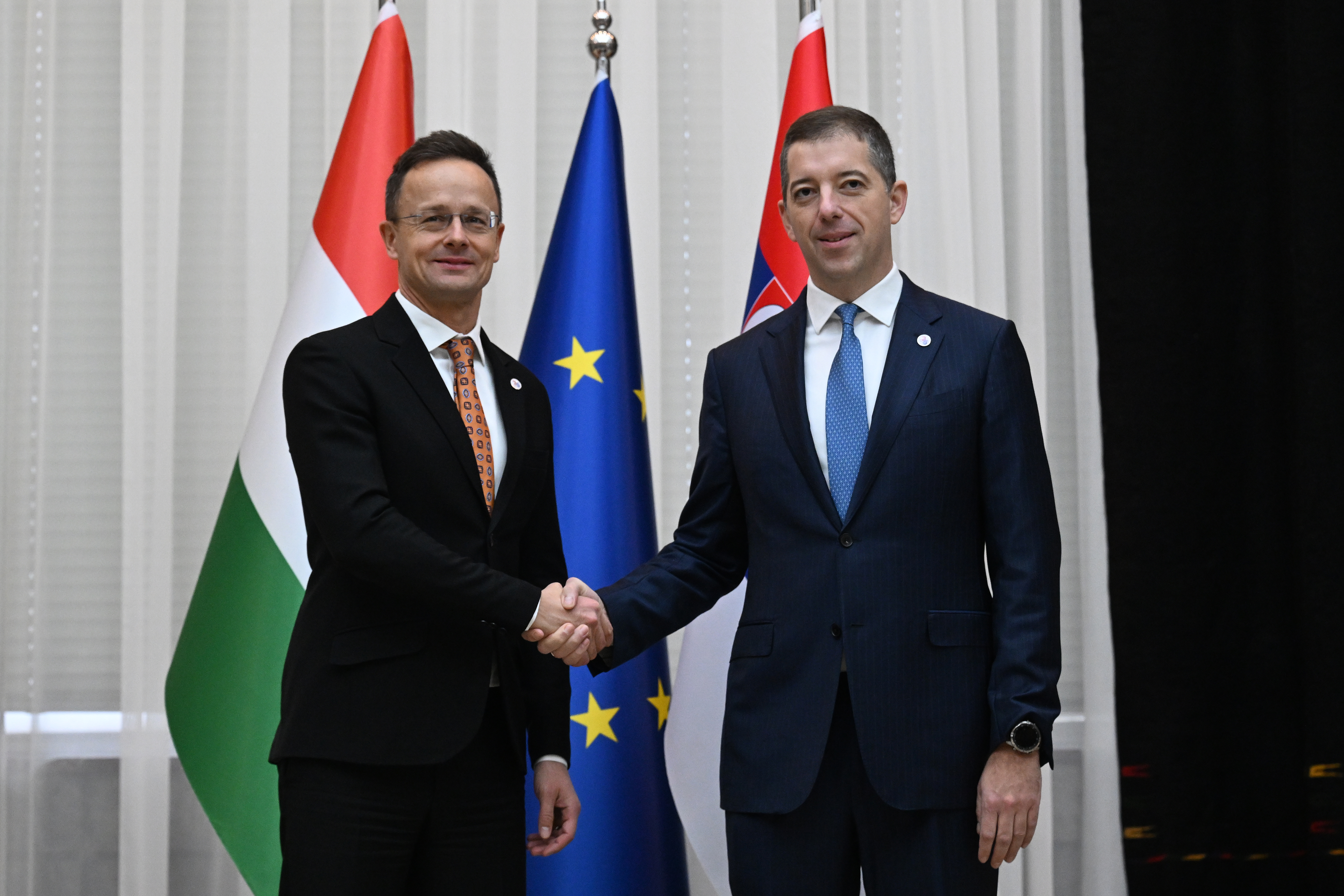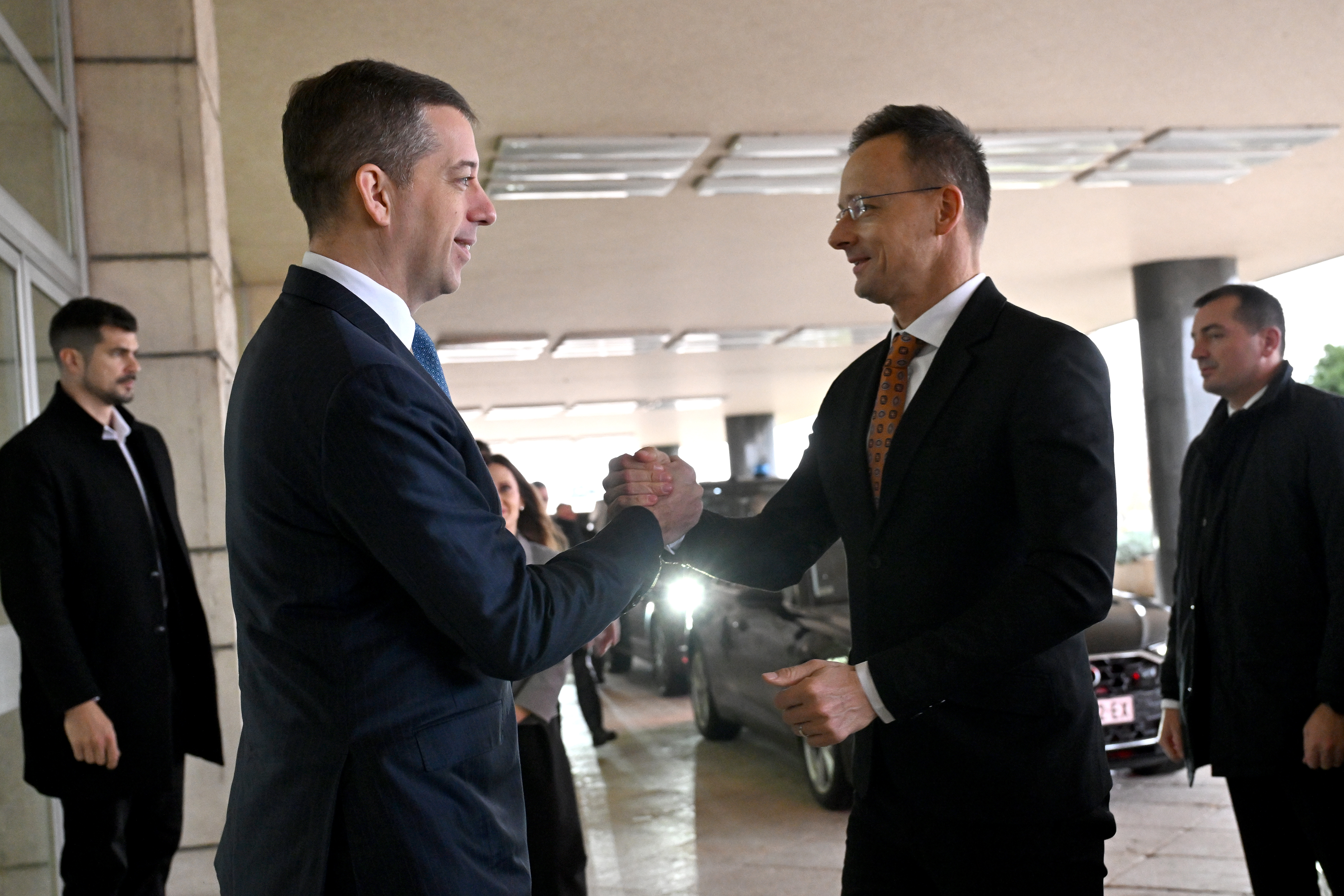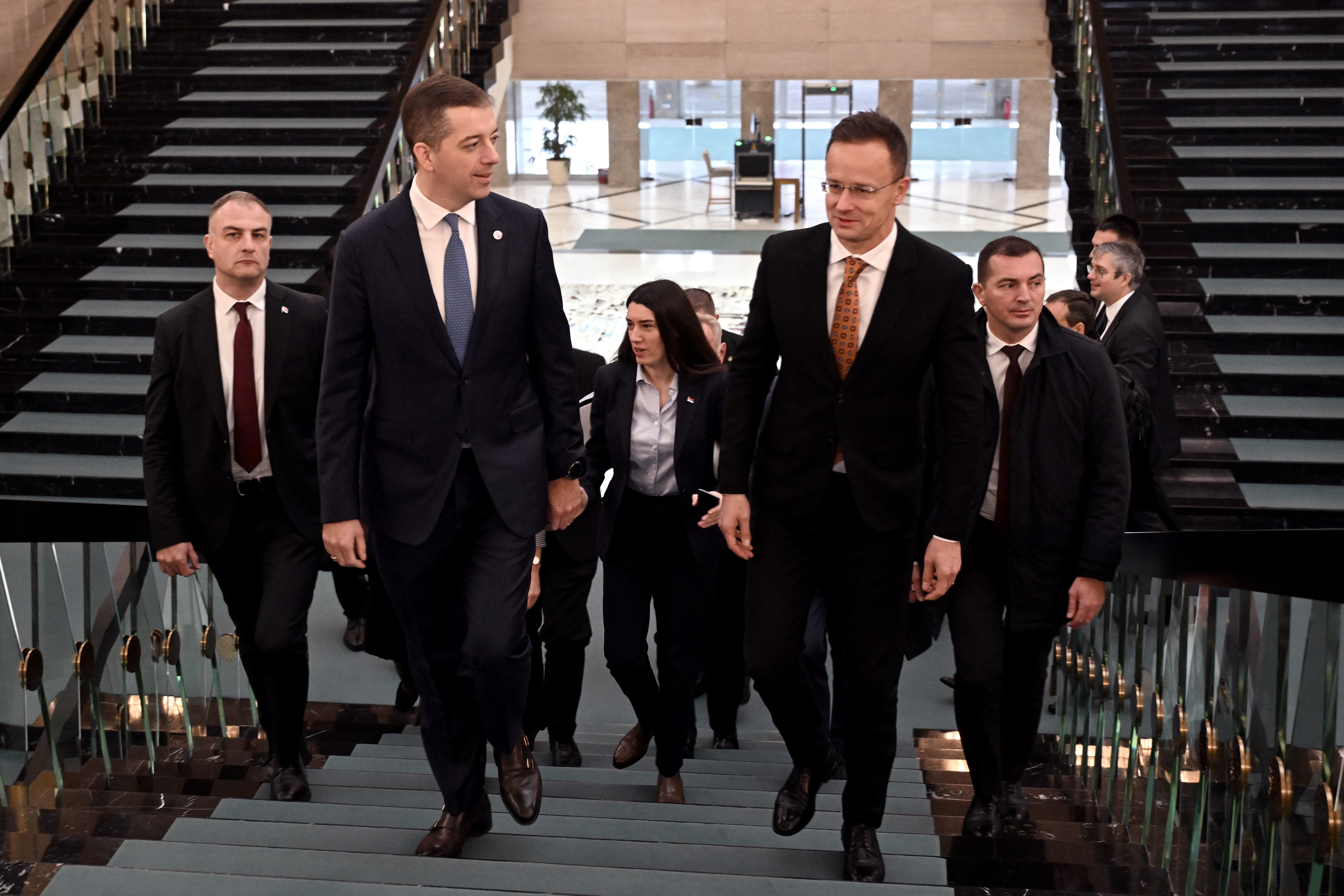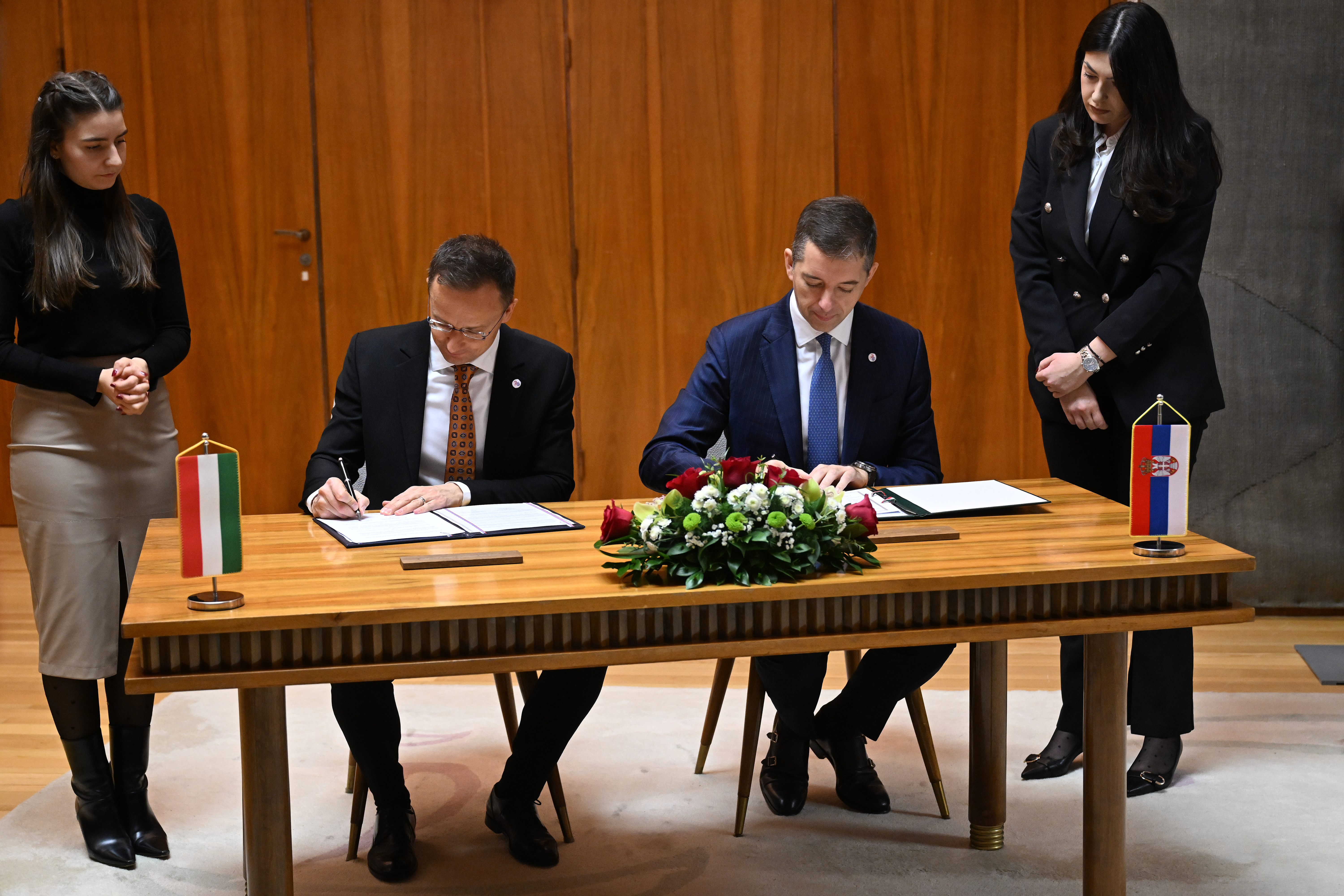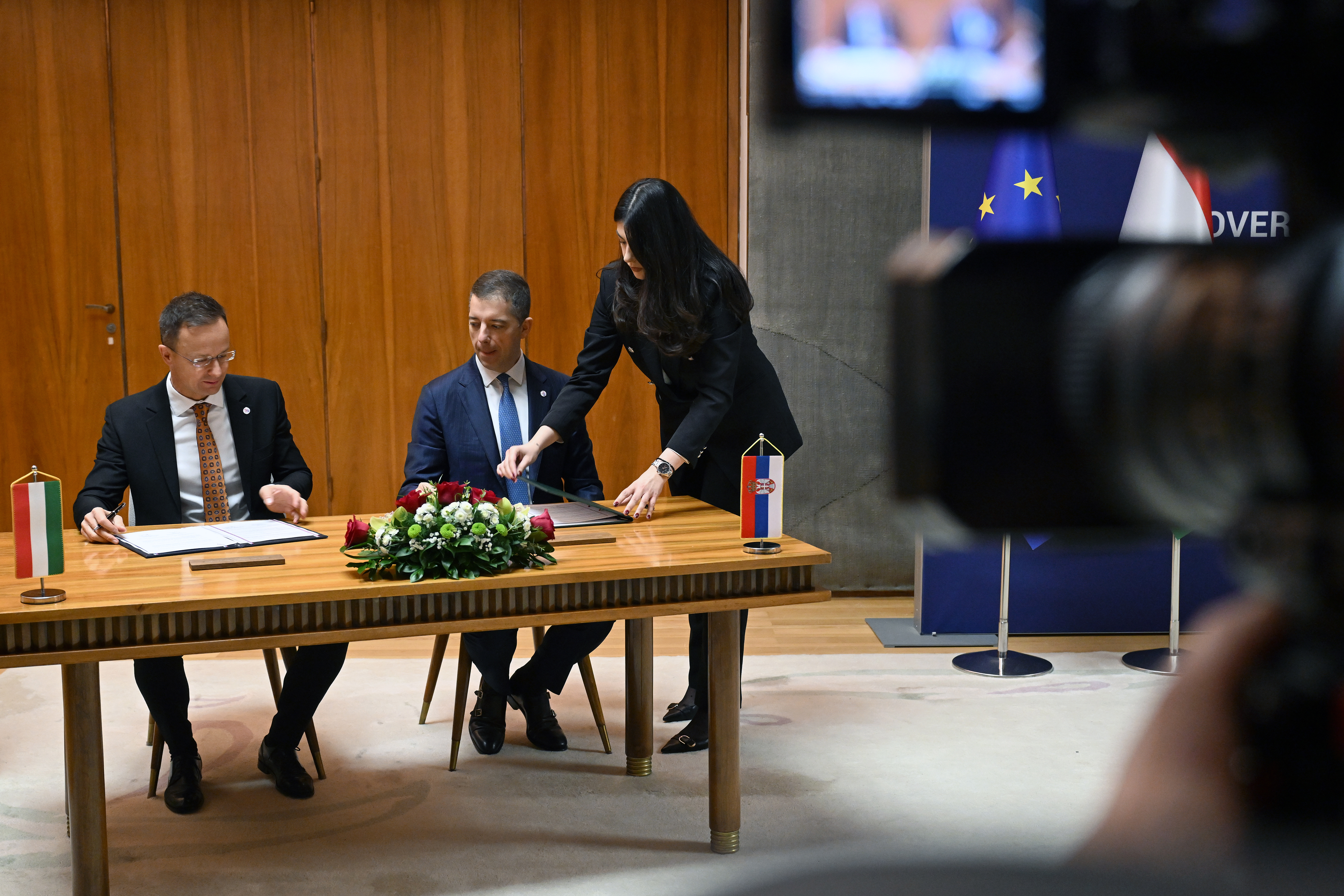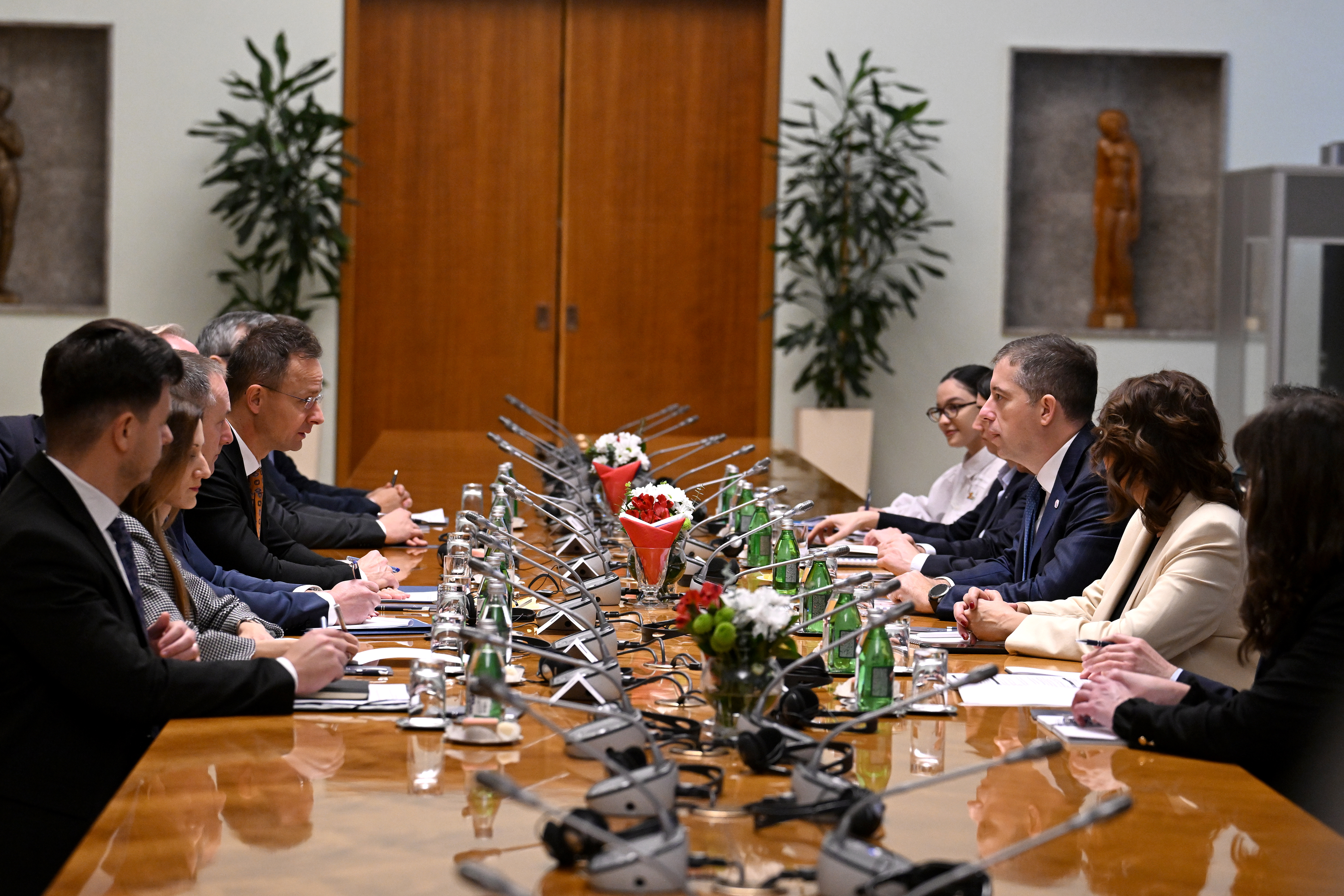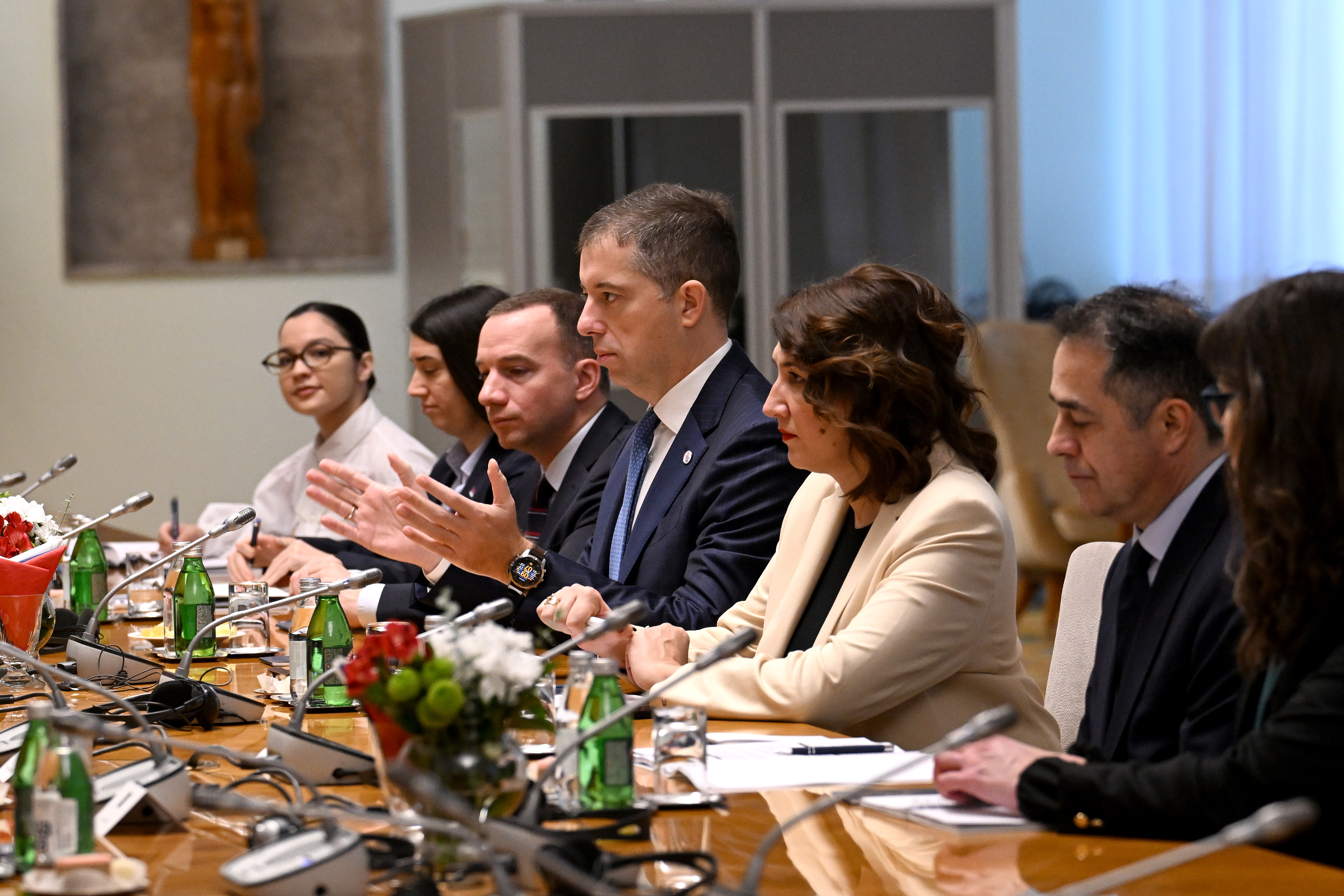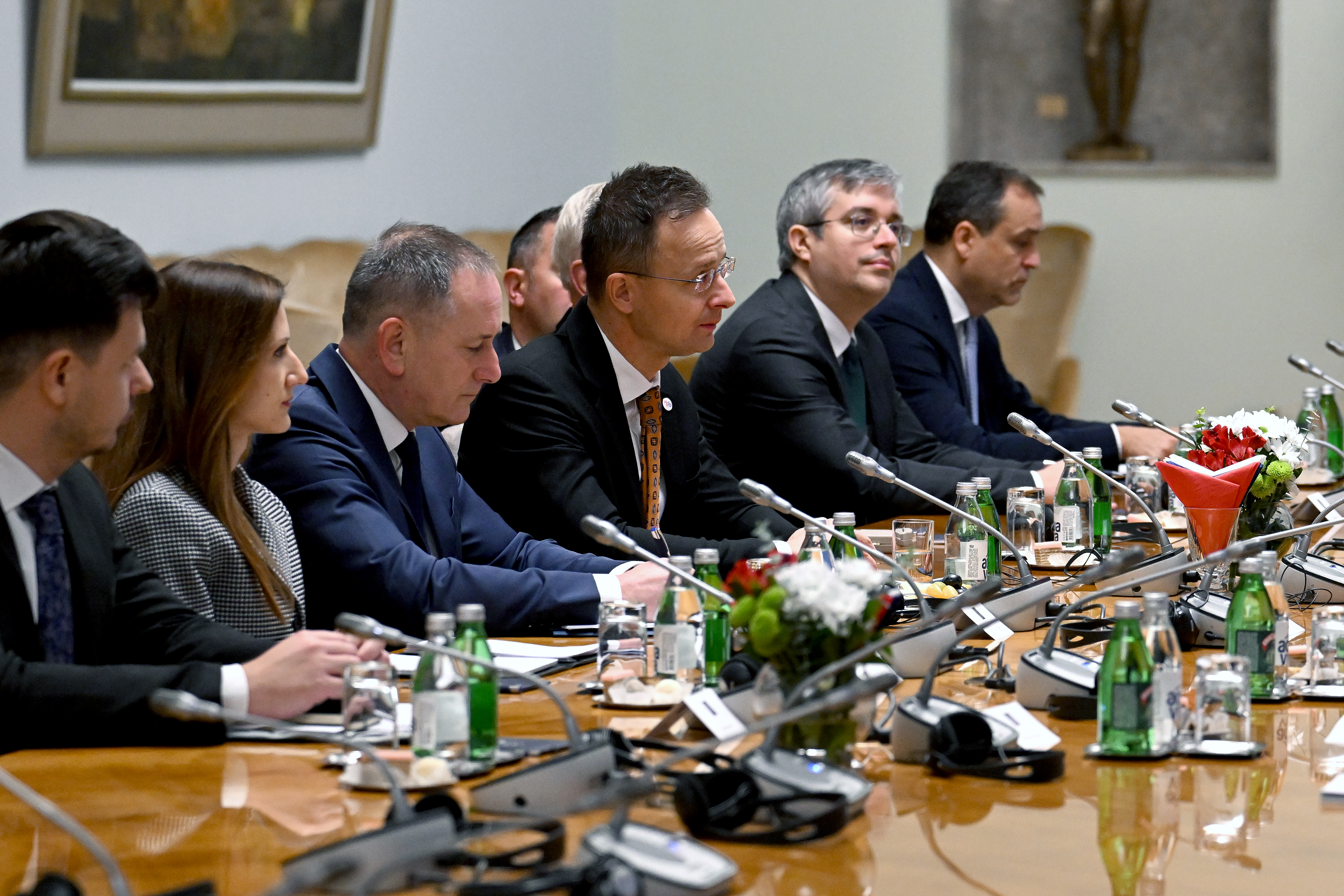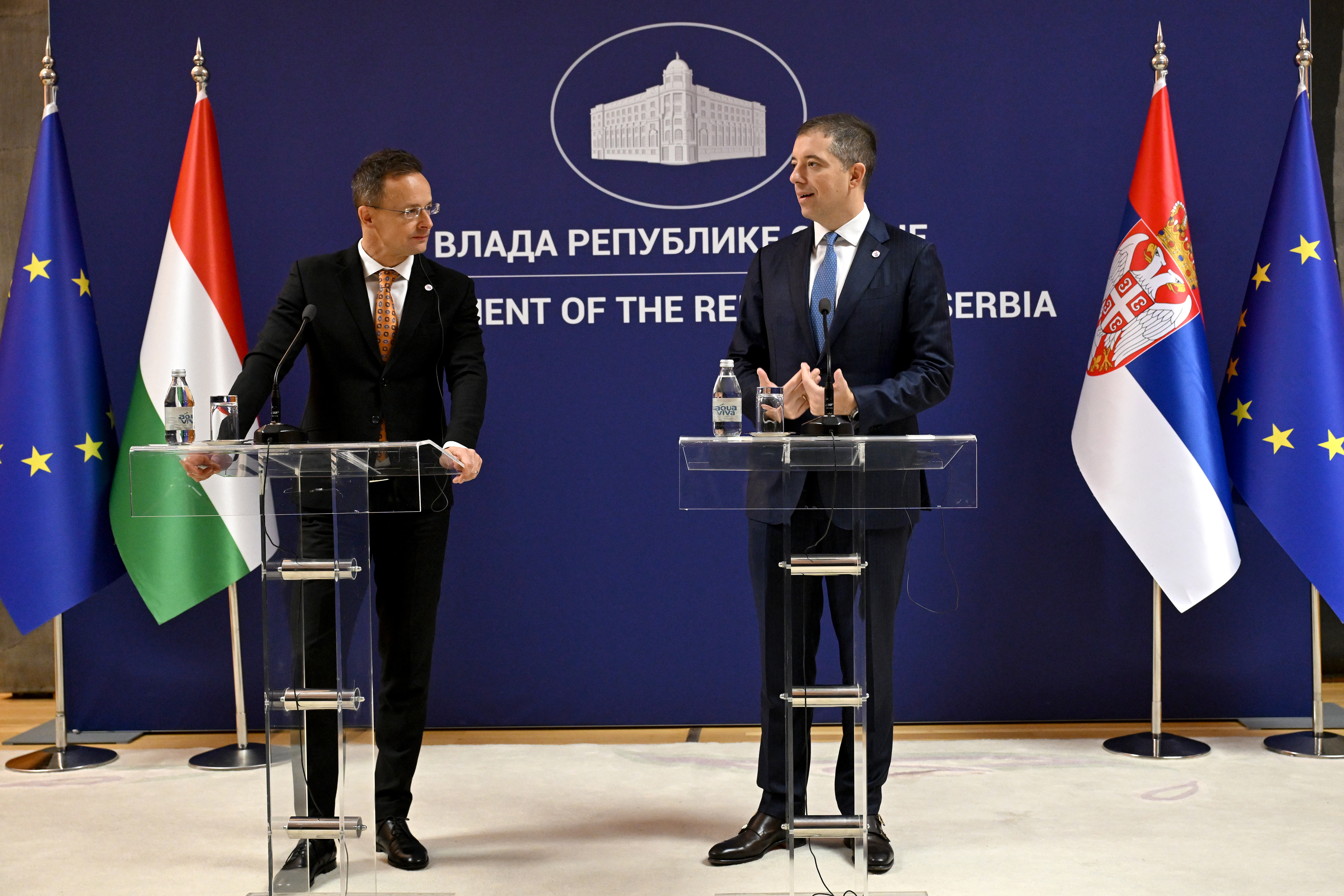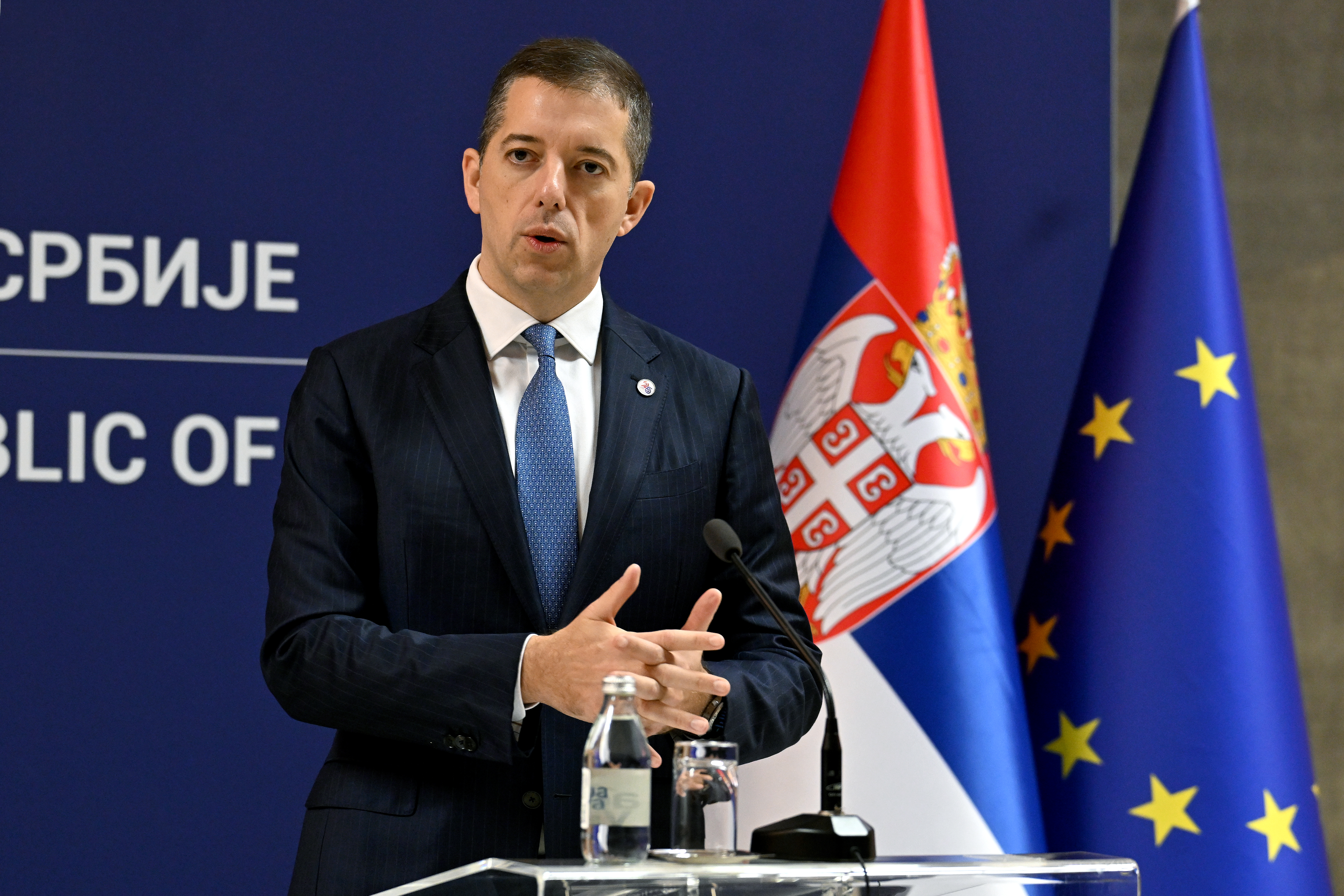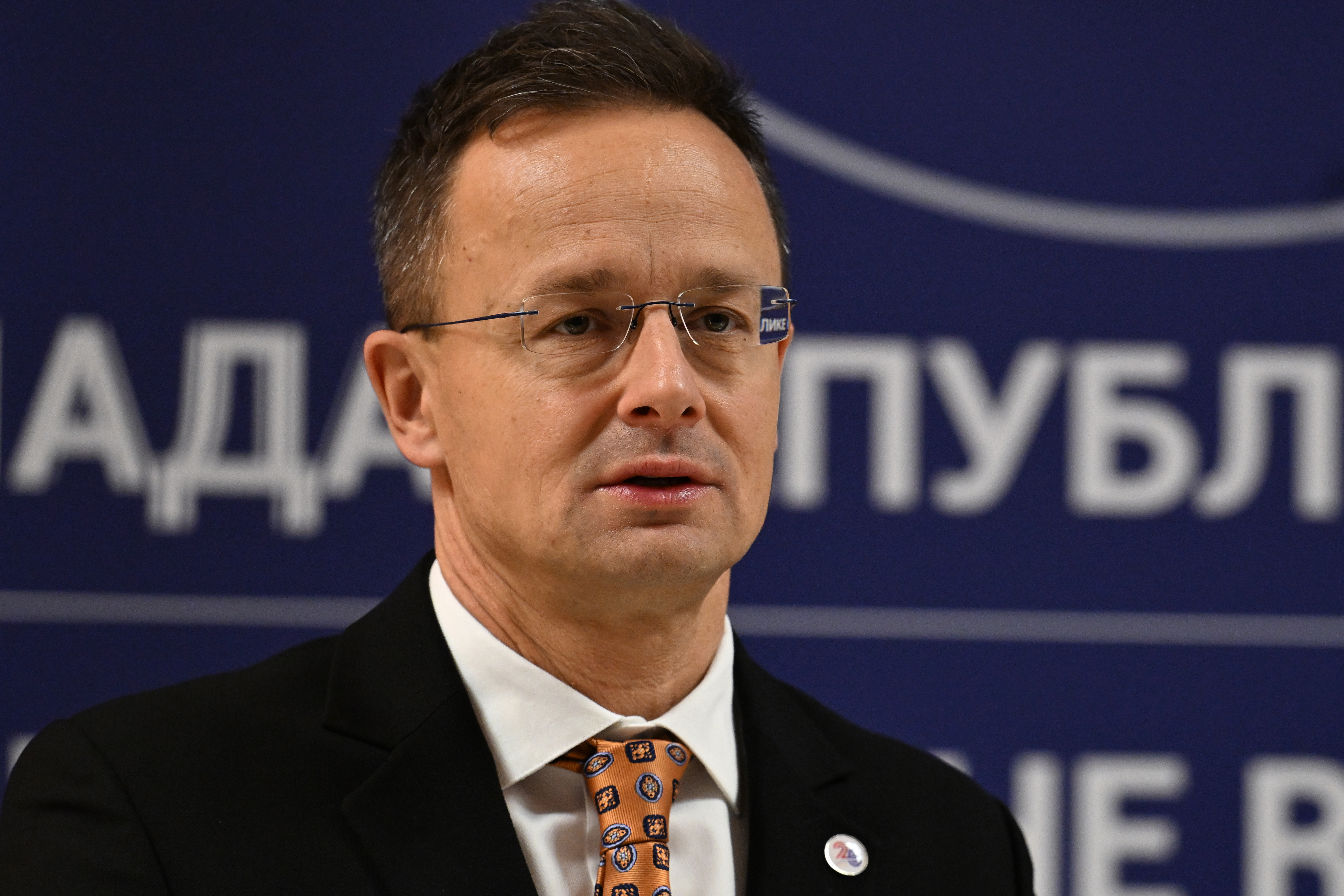Đurić and Szijjártó: Serbia and Hungary are the best example of European Cooperation and strengthened relations
Following the meeting with his Hungarian counterpart, the Serbian Foreign Minister emphasized that it is always a pleasure to host friends from Hungary in Belgrade.
“The public in Serbia, as well as the international community, should be aware that Serbia has no closer or better friend—both in difficult times and in favourable times—than our Hungarian partners, and that our cooperation has become the best possible example of European partnership and the advancement of relations between states over the years. Much credit for this upward trajectory belongs to our leaders, Prime Minister Orbán and President Vučić, but I must also highlight Mr. Szijjártó, who has, over many years, worked tirelessly and intensively to strengthen these relations,” Đurić underlined.
Đurić also expressed his conviction that the friendship between the two countries represents a lasting value and a permanent legacy for both the Serbian and Hungarian peoples.
“Today we met here for several reasons. One important multilateral reason is the meeting of the Central European Initiative, an organization in which both Hungary and Serbia participate, and through which, for 35 years, our two countries have encouraged regional cooperation. The other, perhaps even more important for us, is our bilateral cooperation at a challenging time, when there is a clear need to strengthen and expand communication and ties between our two states—in the energy sector, in people-to-people exchanges, and in the circulation of traffic between our countries. And, as we have just witnessed during the signing ceremony, in strengthening cooperation between our diplomatic networks,” Đurić stated.
He stressed that, given the strategic nature of Serbia–Hungary relations and the historically high level of political alignment, it is only natural that cooperation should continue to deepen in this domain as well.
“We discussed how to build and accelerate the construction of new oil and gas pipelines that will ensure greater energy security for our country and for both our countries during these difficult times. It is absolutely clear that, in today’s circumstances, we cannot rely on a single source or direction of supply, and that if we wish to create favourable economic conditions, this is a ‘conditio sine qua non.’ We also discussed ways to enhance and increase cross-border circulation, and in this regard, our respective services will work on expanding capacity for cargo traffic at border crossings,” Đurić said.
He particularly emphasized that Hungary consistently demonstrates great understanding for Serbia’s European integration process and for the rights and status of the Serbian population in the region, in accordance with the Brussels and Dayton agreements, adding that Serbia is profoundly grateful for this.
“I once again wish to thank our Hungarian friends for the excellent relations between our national communities. For me, the way the Hungarian state treats the Serbian community in Hungary stands as an exemplary model. We are making great efforts—and, cherishing the memory of István Pásztor, we are determined—to further strengthen the position of the Hungarian community and the Hungarian people in Serbia. I can say with sincere emotion that today we truly have, in every sense of the word, fraternal relations between our national minorities. We are deeply grateful for this,” Đurić stressed.
The Hungarian Minister of Foreign Affairs and Trade, Péter Szijjártó, noted that in times of global challenges, cooperation between Serbia and Hungary gains in importance, adding that, acting together and in a spirit of friendship, the two countries will overcome every difficulty.
Speaking of European integration, Szijjártó reiterated Hungary’s position that it is in the European Union’s interest for Serbia to become a member as soon as possible, and that Serbia fully deserves this given its economic progress and development capacities.
The Hungarian Foreign Minister announced the modernization of the Bački Breg–Herzogszántó border crossing, which will be upgraded for cargo transport, as well as the joint use of premises of the diplomatic-consular mission in Thessaloniki—an already established practice of colocation and a strong example of the strategic cooperation between the two countries.
During today’s meeting, Ministers Đurić and Szijjártó signed the Protocol between the Ministry of Foreign Affairs of the Republic of Serbia and the Ministry of Foreign Affairs and Trade of Hungary on the Joint Use of Premises for the Needs of Diplomatic-Consular Missions in Thessaloniki.

